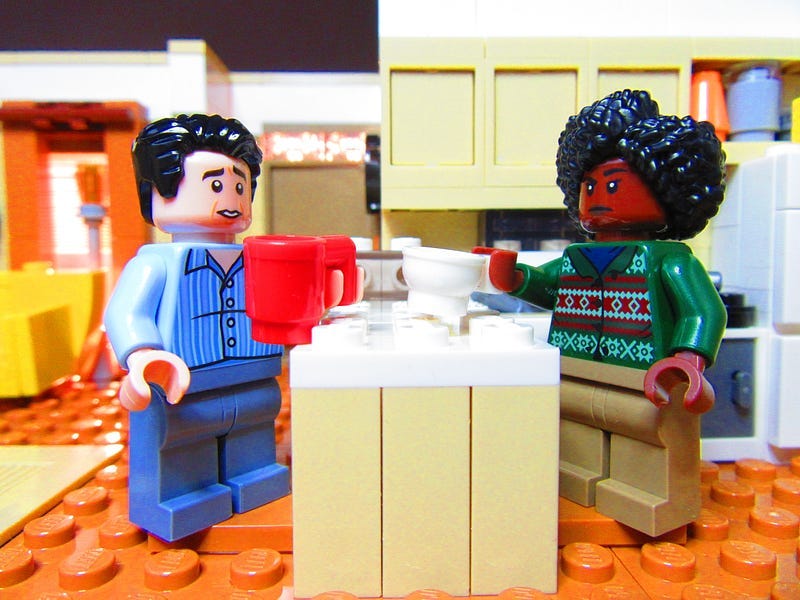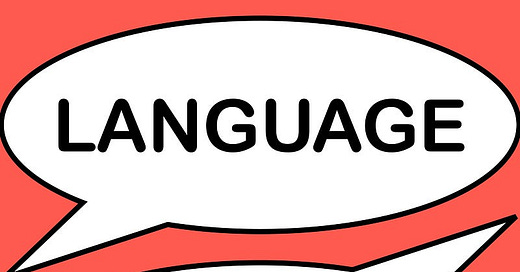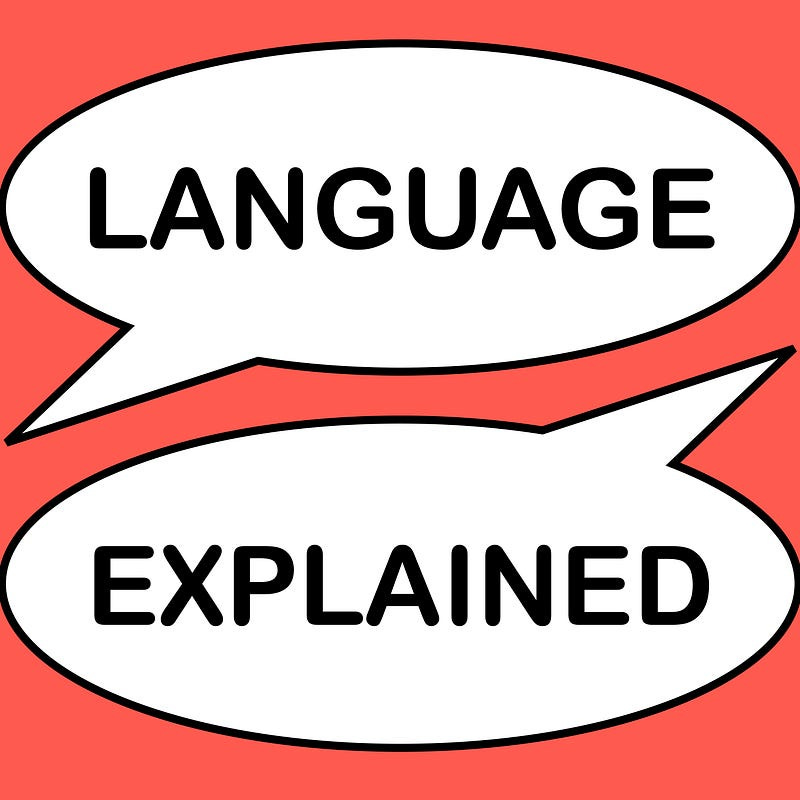LANGUAGE EXPLAINED
A dialog about the difference between dialects and languages
Just when I thought that this blog could not be any more about addressing big questions of linguistics and other humanistic disciplines, I found myself thinking about what a language is. As a linguist, yes, I could invent some arbitrary definition for you, but I’m not going to that. Instead, I decided to write this cheesy dialog (loosely based on real-life dialogs I had) outlining my train of thought about this topic.
Acquaintance: Oh, so you speak Serbo-Croatian?
Me: Well, yes and no. I speak Croatian.
Acquaintance: Ok, but what’s the difference? Serbian and Croatian must be the same language, no?
Me: In terms of linguistic similarities you could say they are like American and British English, but there is a big difference. Due to many complex fortunate and less fortunate historical outcomes, American and British people want to keep referring to their languages by the same name, but Croatian and Serbian people do not.
Acquaintance: So, it’s more of a political and not a linguistic decision on what counts as a separate language in this case?
Me: Yes, but that doesn’t make it less valid. The name “Serbo-Croatian” was also a political choice. In fact, very few languages are called a language based on “purely linguistic” decisions. We linguists don’t have good definitions of language either.
Acquaintance: How come?
Me: Well, if it was up to us we would call every regional variety a new language, as we do in parts of the world that didn’t succumb to the politics of deciding what is a language and what is a dialect. Let me tell you about a conversation I had with a friend the other day:

Friend: What language is spoken in Vanuatu?
Me: Well, the national language is Bislama, but linguists count more than 130 indigenous languages spoken.
Friend: Wow, that’s so much for such a small country,* the linguistic diversity is so much higher there than here in Europe.
*Population of 307,815 people.
Me: Well, we do have a lot of “dialects” in every single European language.
Friend: Yeah, but they are dialects…
Me: But many of them are not even mutually intelligible, take a person from two different regions in Italy or Germany and they probably won’t be able to communicate in their “dialects”. On the other hand, a Spanish and a Portuguese speaker, as speakers of two different languages, will probably have a much more successful communication than that.
Friend: Ok, so basically these dialects in Italy and Germany should be classified as different languages if we take mutual intelligibility as the criterion?
Me: Yes.
Friend: And in Vanuatu these 130 languages are mutually intelligible?
Me: Not all of them, no, but many are to some extent. That’s the thing, it’s very hard to measure mutual intelligibility. You see, we are always dealing with super complex interactions that cannot be easily put on a scale from 1 to 10.
Friend: But you could do experiments with how much every speaker of one language/dialect understood a speaker of another language/dialect and do some statistics.
Me: Ok, but for every single language? First, that would be a lot of work. And second, it might not be as useful as you think. In the end, people don’t need a numerical measurement to know what language they speak, they already have a strong sense of identity that tells them that. Besides, you would also have to decide on what number on this scale is the cut-off point between a dialect and a language, so the problem is not exactly solved. It would be a pretty futile effort.
Friend: I think you are right. It seems we are stuck with sociopolitical definitions of language.
So, is my conclusion that linguistics cannot define its most basic object of study? Well, not exactly. When we do linguistic research, we need to be precise about what we are talking about. If I say my article is about Neapolitan, and I collected my data in the city of Naples, that is enough for other linguists to understand exactly what language I am talking about. Furthermore, in historical linguistics I can also precisely determine how different Neapolitan is compared to Standard Italian, which originally comes from Florence.


This tree represents the evolutionary history of different Romance languages, just like species are represented in a tree in evolutionary biology. The languages/dialects historically branch off into two or more from what used to be a single language, by many subtle changes that happen over time, for example, Latin barba ‘beard’ became varv [ˈvarvə] in Neapolitan and barba in Standard Italian. Notice how b in Latin changed to v in Neapolitan, whereas in Standard Italian it remained b. Another example of this mostly regular change is the Neapolitan vevr [ˈvevərə] and Italian bere meaning ‘to drink’, which come from Latin bibere with the same meaning (Russo and Shanti, 2020).
If are curious as to how linguists actually go about understanding the history of languages and making trees like this one, subscribe to this publication and the newsletter below, because I am currently working on a post explaining exactly that: Why are some languages similar to each other and others are not? Or how linguists know if languages were simply in contact or they historically originate from the same language.
In the end, we can conclude that we linguists always know what we are talking about from the linguistic perspective, but using everyday labels like language and dialect is inevitably a social and political phenomenon and it’s fine to use it however you feel best fits your cultural identity.
Sources:
Russo, Michela and Shanti Ulfsbjorninn. 2020. Initial lenition and strength alternations (v/b) in Neapolitan: A laryngeal Branchingness condition. Glossa: a journal of general linguistics 5(1): 11. 1–27. DOI: https://doi.org/10.5334/gjgl.534
Additional sources:
Languoid, Doculect and Glossonym: Formalizing the Notion 'Language'
Martin Haspelmath's (2013) recent post in this forum discussed the criticism by Morey et al. (2013) of the ISO 639-3…dlc.hypotheses.org
About the author and editor: Ana Krajinović
I am a postdoctoral researcher at the Heinrich Heine University of Düsseldorf. In 2020 I completed my PhD in linguistics at the Humboldt University of Berlin and the University of Melbourne on Nafsan, an Oceanic language spoken in Vanuatu. During the pandemic, I started creating short comic strips about linguistics and fieldwork.




